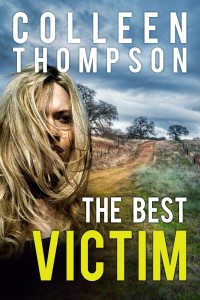New Novelists’ Terms of the Trade
Like any other field, novel writing is riddled with jargon, verbal shorthand that often makes newcomers feel helplessly foolish or hopelessly lost. The bad news is that what you don’t know can definitely hurt you with editors and agents, but the good news is that writers are usually generous souls, happy to take the time to answer the same “I-know-this-is-probably-dumb” questions that they were asking just a few short years ago. You can meet your fellow writers, both published and unpublished, through local group meetings, conferences, on-line forums, and even, indirectly, through columns like this one.
Getting started
Let’s begin with some basics. Your manuscript is any piece of writing you’re working on with the goal of publication. If you’re writing a novel manuscript, it’s very helpful to understand the genre, or type of writing you are doing. Fiction genres include mystery, suspense, thrillers, action/adventure, romance, science fiction, fantasy, western, gay/lesbian, and literary, along with a few more. Within the genres, there are subgenres. Mystery, for example, has subgenres such as detective stories and cozies, the traditional British murder stories that often feature quaint villages, country vicars, and little bloodshed. Some novels have broad appeal and are not easily categorized. These are known as mainstream fiction. The genre and subgenre often help determine the length of the manuscript you’ll need to produce, along with reader expectations, so it’s important to get an idea of your novel’s category as soon as possible.
Getting polished
While you are working to perfect your manuscript, you may hear your fellow writers discussing their critique groups. These are (usually) small, informal groups who read and offer suggestions on each other’s manuscripts. The best critique partners are as free with compliments as comments and can accept respectful criticism. If you’d like to form a critique group, ask around at conferences or writers’ groups or try joining an on-line group.
Getting published
Once you have a completed, carefully edited manuscript, your next step toward publication is to decide whether you’ll need to contact an editor directly or go through an agent. Only an editor can buy your book, but an agent can help sell it. The editor works for the publisher to acquire manuscripts then helps shape the final product through (what else) editing, assignment of associated artwork, sales meetings, et cetera. An agent is a go-between who gets your work to the right editors and negotiates contracts. For these services, he/she collects approximately fifteen percent of any money you earn.
Whether you decide to start off by submitting materials to editors or agents, you must first investigate their guidelines. Guidelines tell you what sorts of material publishers or agents are looking for and how they want to be approached. You can find them in books such as the most up-to-date version of the Writer’s Market or Herman’s Writer’s Guide to Book Editors, Publishers, and Literary Agents. Many are also available on the Internet or from genre writers’ organizations, such as the Romance Writers of America. Not bothering to read or follow agent or editor’s submission guidelines wastes both time and postage, so don’t skip this critical step.
In nearly every instance, you’ll be asked to submit a query letter. This is a business letter briefly telling the editor or agent what you have to sell, your qualifications for writing it, and just enough about the novel to catch the reader’s interest. The query letter must always contain an SASE, or self-addressed stamped envelope, for the editor’s reply.
Sometimes, an editor or agent will ask that you send a partial manuscript. This often consists of the first three chapters, or about sixty pages, of the book, but check the guidelines carefully for individual preferences. Normally, you’ll also be asked to provide a synopsis, sometimes called an outline. A synopsis is a brief summary of the important events and characters of the novel. Often, it’s between five and eight pages in length, though guidelines may specific different lengths. Rarely, you may be asked to include a chapter outline, which is a chapter-by-chapter synopsis.
If the agent/editor to whom you’ve submitted work likes and has a need for what you’ve sent, you will then be asked to send the full manuscript, or the entire unbound book. Never send a full manuscript unless it’s requested.
Rejection slips are a fact of life in writing. There are hundreds of reasons editors or agents may decline to publish or represent your work, from a lack of available slots to poor grammar to weak conflict. Most rejections boil down to personal preference. All of us have read about books that were rejected dozens of times before going on to become blockbusters. The lesson is don’t take any individual rejection slip very seriously.
Hopefully, one day you will receive The Call to let you know an editor wants to make an offer for your book. In most cases, at that time you’ll be offered a royalty, or percentage of each book sold, along with an advance, also known as the advance against royalties. The advance is an initial payment taken from your anticipated royalty money. Your book will have to earn back the advance you’ve received before you see any additional royalties. The idea is not unlike a parent advancing a child his allowance.
When you feel The Call is imminent, it’s time to learn a lot more jargon, much of it involving rights and contracts. Until then, however, use the basic terms discussed here to guide you as you write, polish, and take steps toward selling your first novel. And when you have a few free moments, go ahead and daydream about that call.
Copyright 1999, All rights reserved. Please do not link or copy this page without permission from the author, Colleen Thompson


